Edit: See the bottom for some important updates.
Kelsey Piper from Vox's Future Perfect very recently released an interview (made through Twitter DMs) with Sam Bankman-Fried. The interview goes in depth into the events surrounding FTX and Alameda Research.
As we messaged, I was trying to make sense of what, behind the PR and the charitable donations and the lobbying, Bankman-Fried actually believes about what’s right and what’s wrong — and especially the ethics of what he did and the industry he worked in. Looming over our whole conversation was the fact that people who trusted him have lost their savings, and that he’s done incalculable damage to everything he proclaimed only a few weeks ago to care about. The grief and pain he has caused is immense, and I came away from our conversation appalled by much of what he said. But if these mistakes haunted him, he largely didn’t show it.
The interview gives a much-awaited outlet into SBF's thinking, specifically in relation to prior questions in the community regarding whether SBF was practicing some form of naive consequentialism or whether the events surround the crisis largely emerged from incompetence.
During the interview, Kelsey asked explicitly about previous statements by SBF agreeing with the existence of strong moral boundaries to maximizing good. His answers seem to suggest he had intentionally misrepresented his views on the issue (see below for an important notice regarding this question):
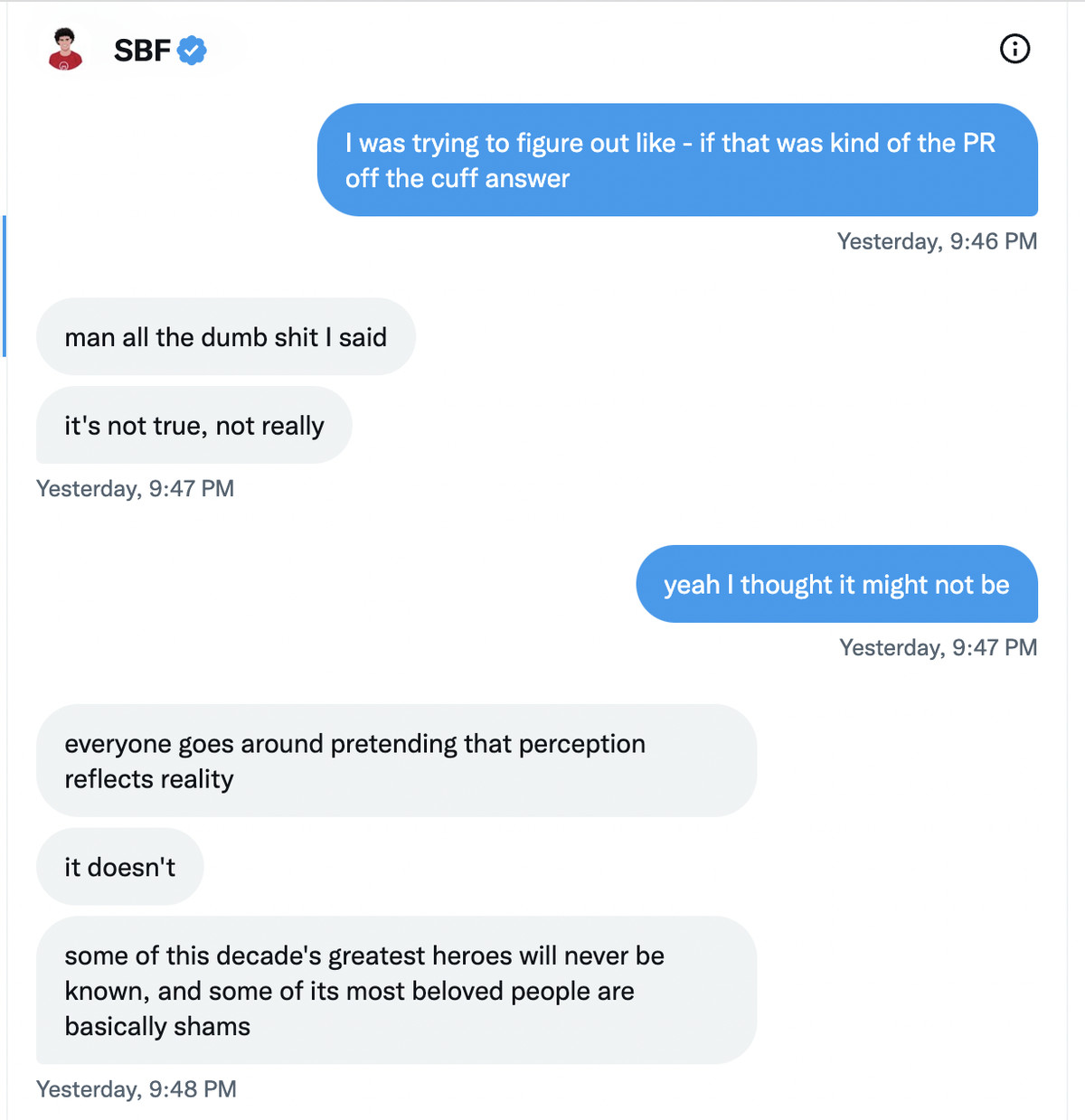
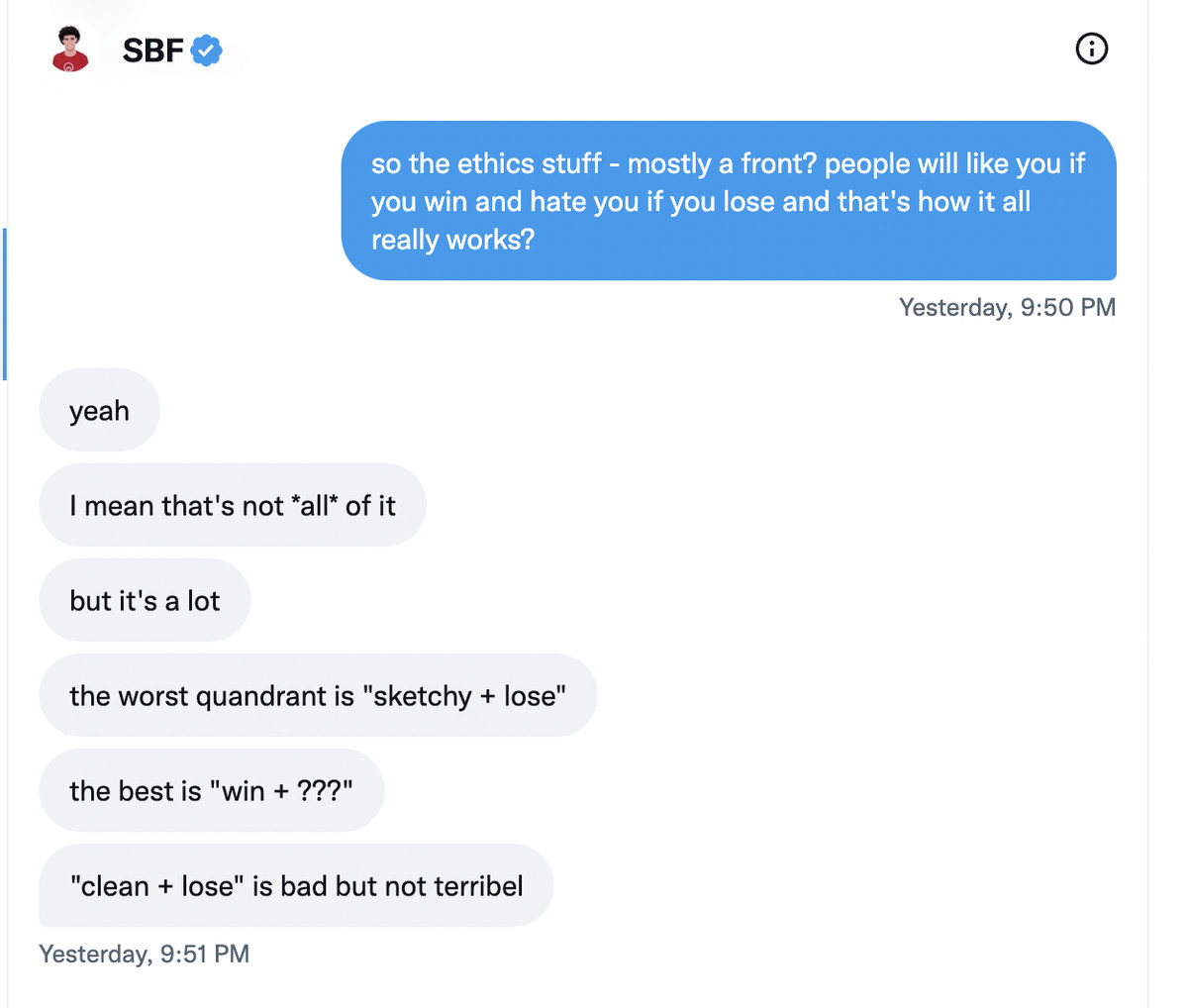
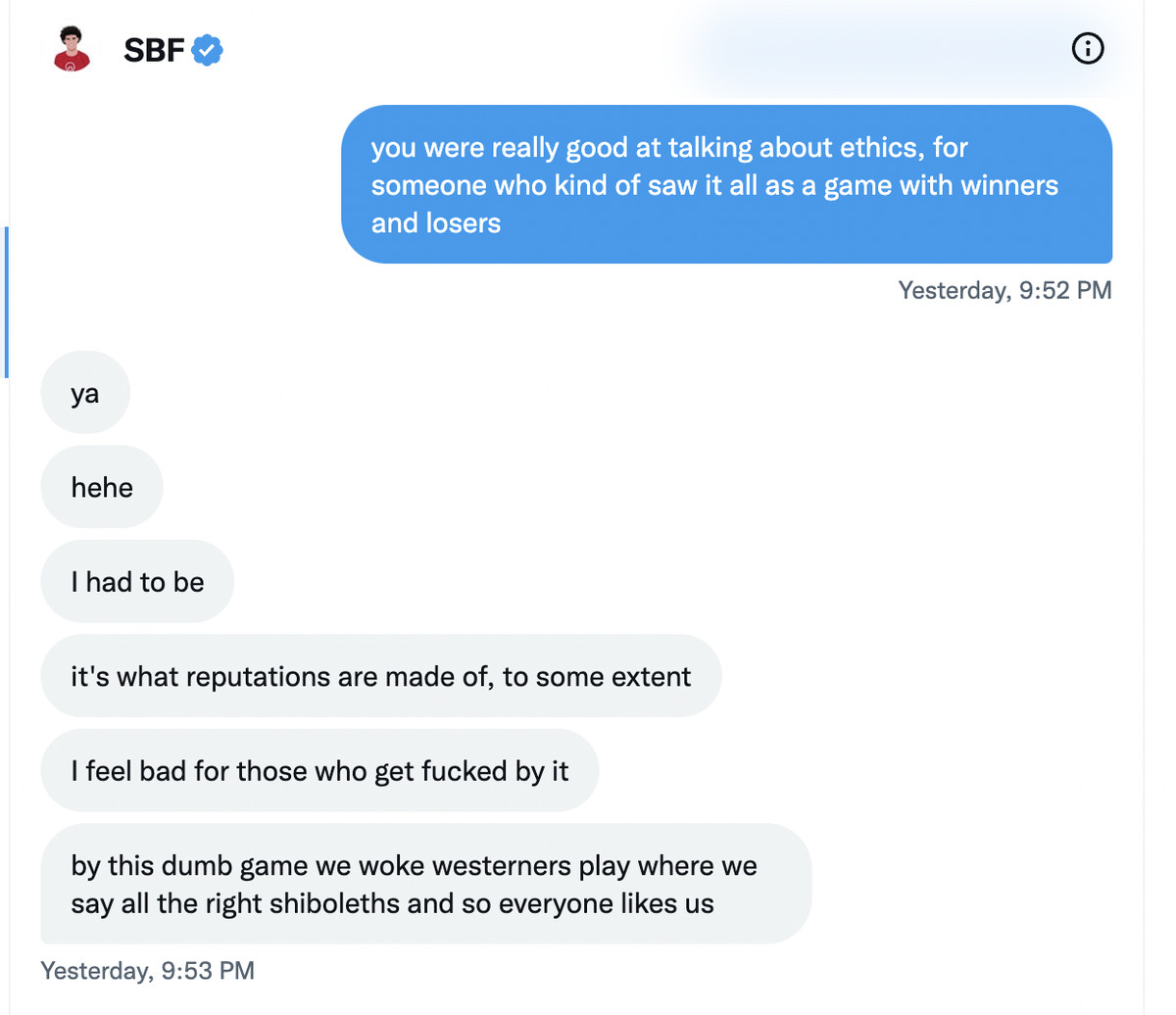
This seems to give some credit to the theory that SBF could have been acting like a naive utilitarian, choosing to engage in morally objectionable behavior to maximize his positive impact, while explicitly misrepresenting his views to others.
However, Kelsey also asked directly regarding the lending out of customer deposits alongside Alameda Research:
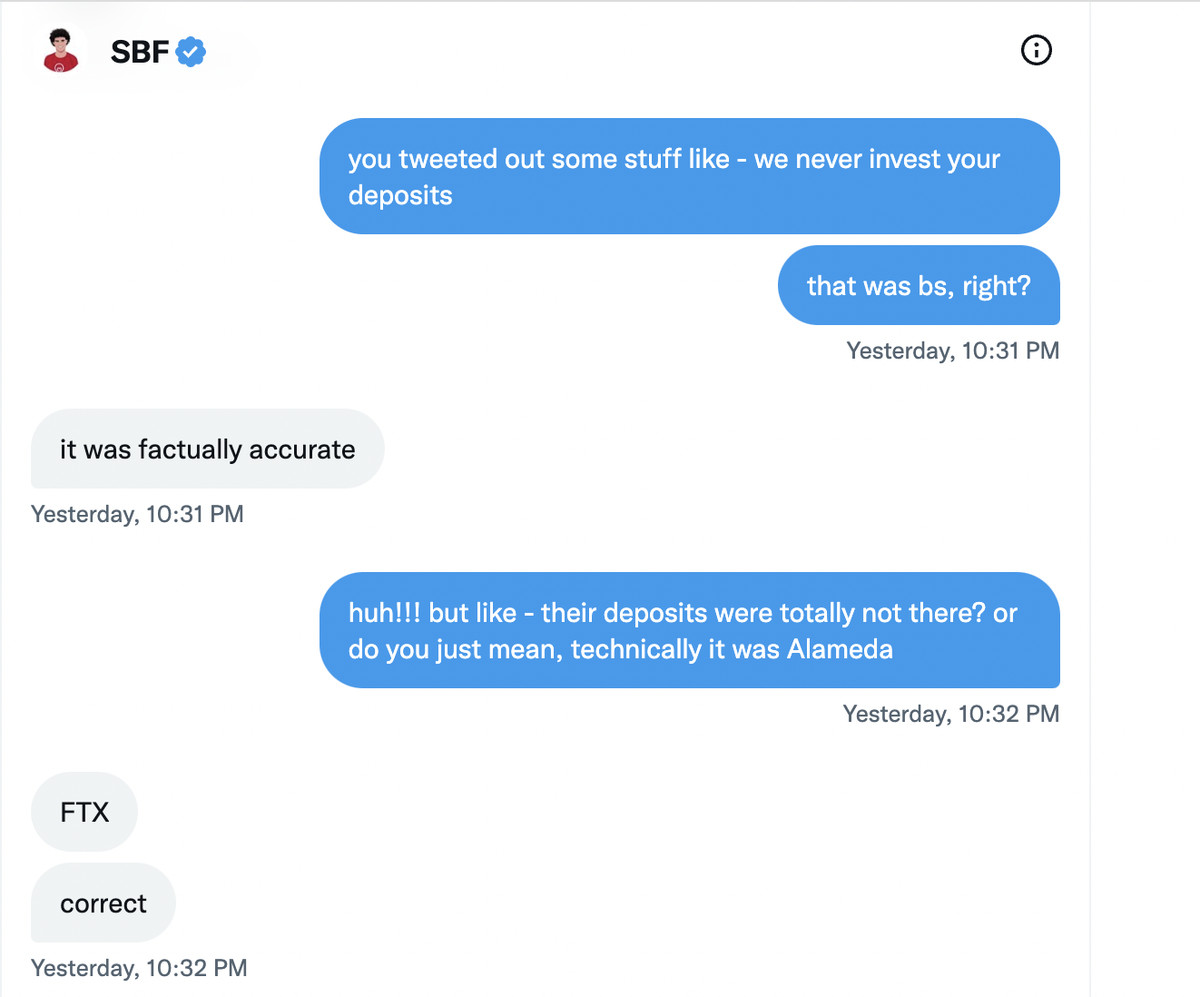
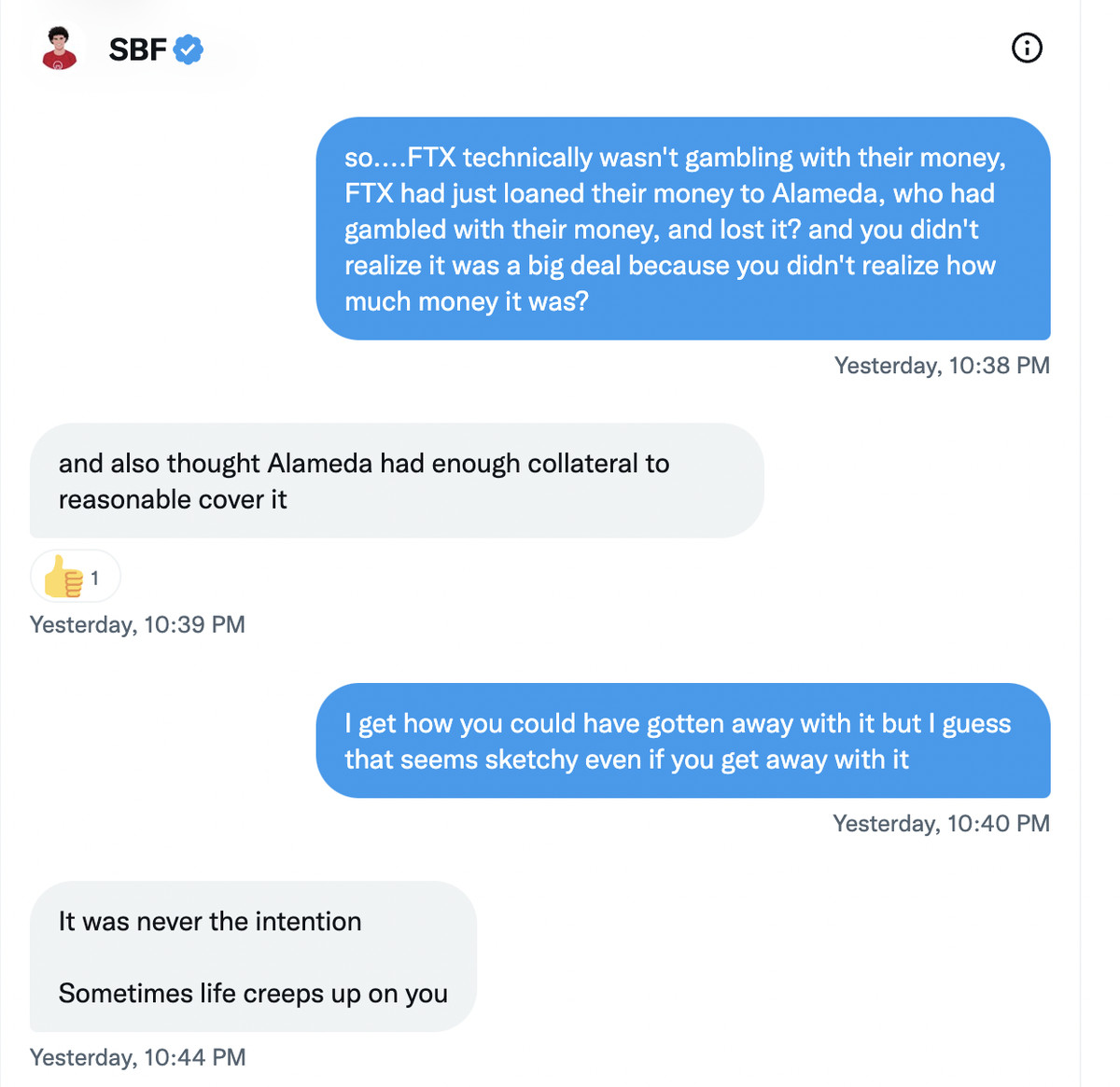
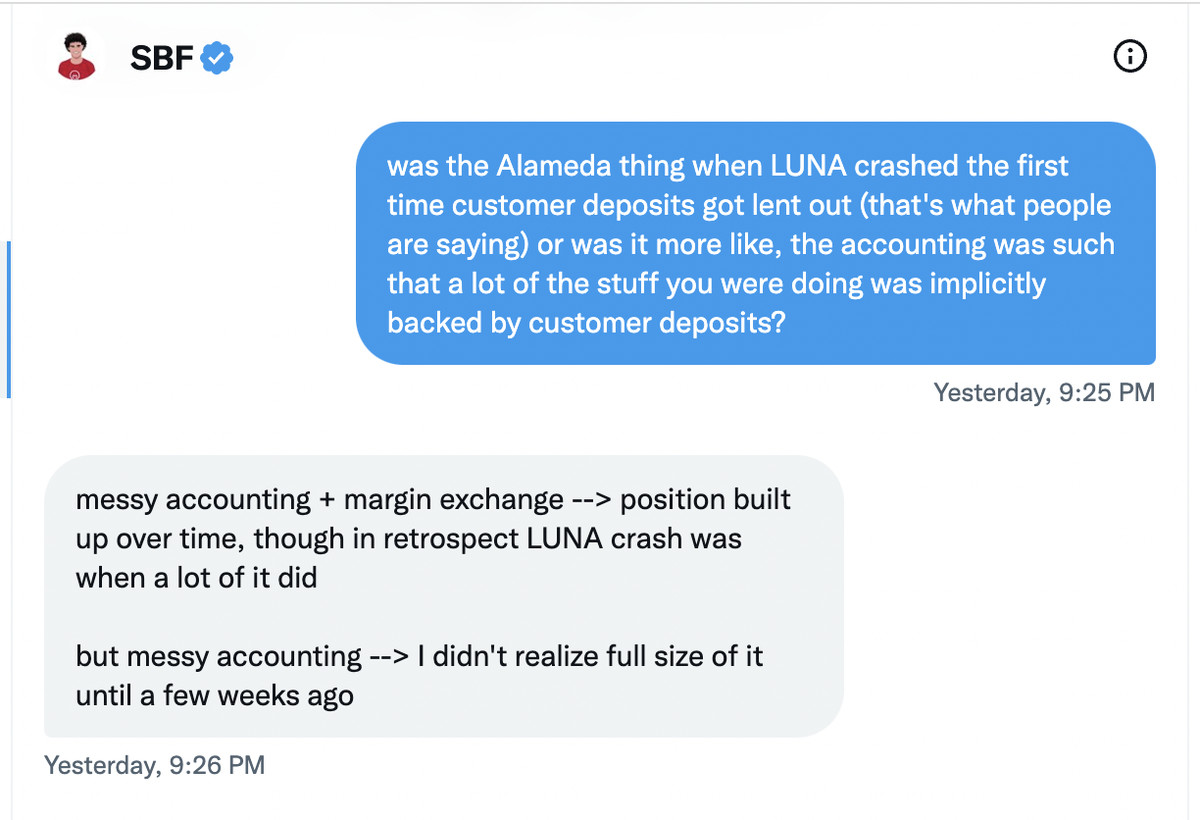
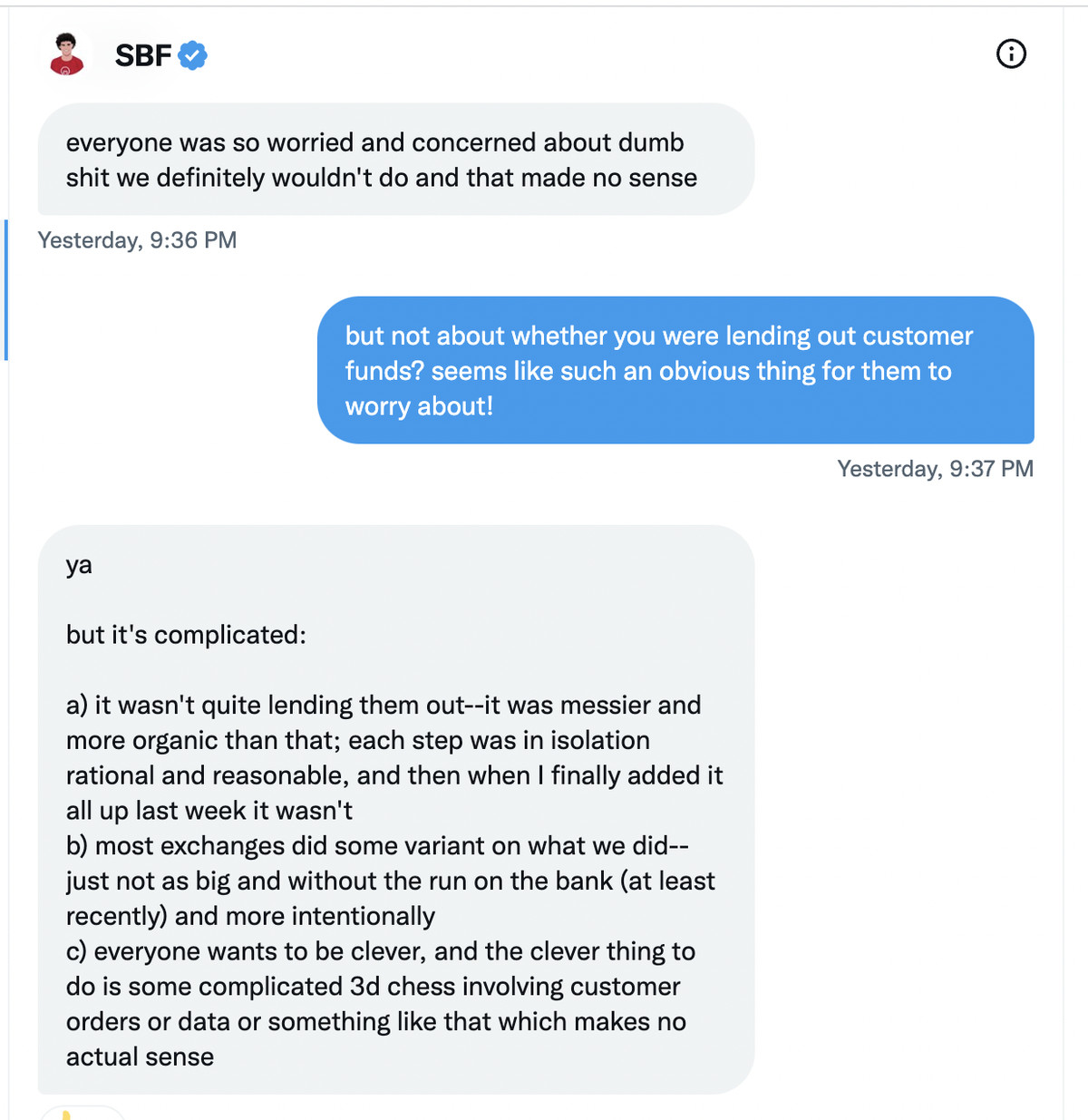
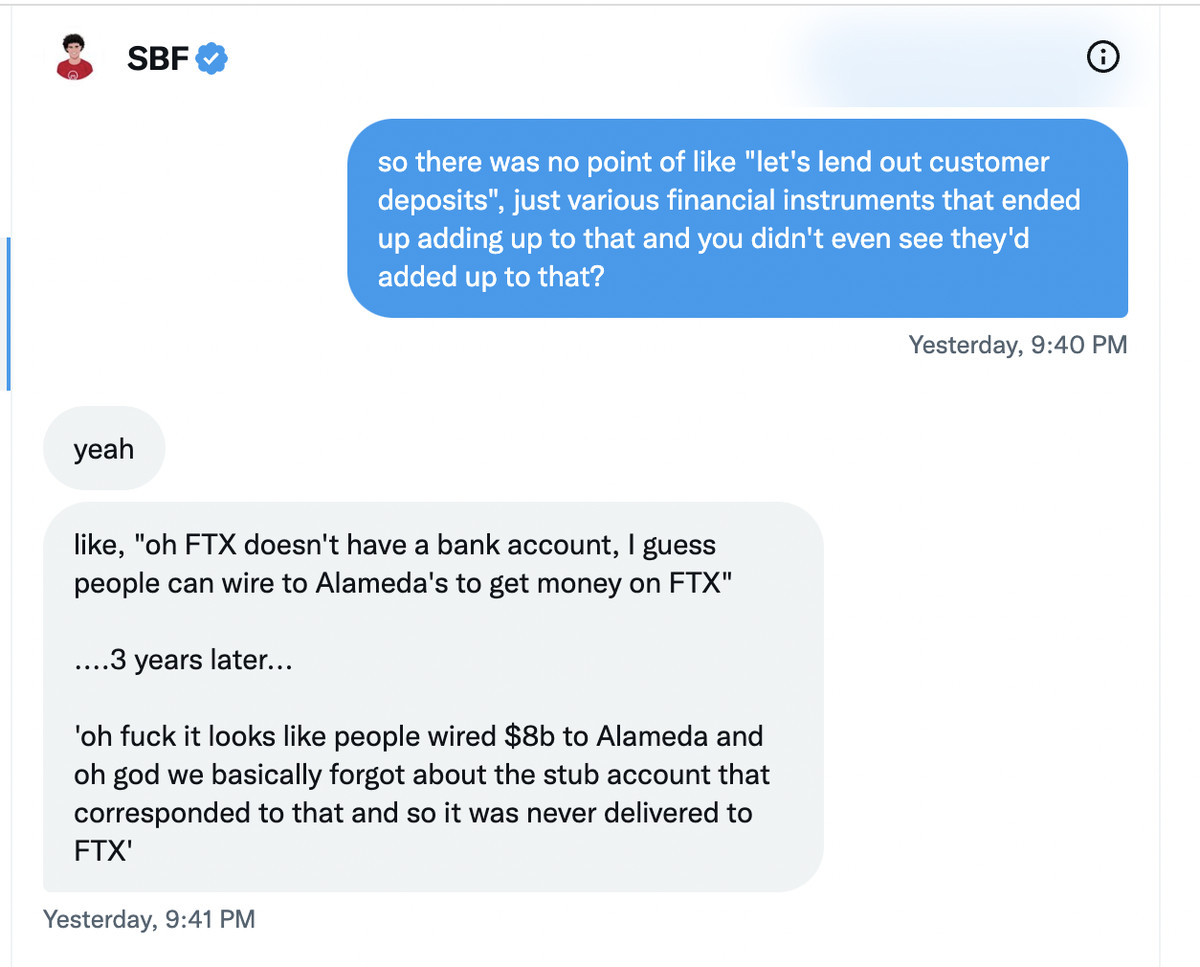
All of his claims are at least consistent with the view of SBF acting like an incompetent investor. FTX and Alameda Research seems to have had serious governance and accounting problems, and SBF seems to have taken several decisions which to him sounded individually reasonable, all based on bad information. He repeatedly doubled down, instead of cutting his losses.
I'm still not sure what to take out of this interview, especially because Sam seems, at best, somewhat incoherent regarding his moral views and previous mistakes. This might have to do with his emotional state at the time of the interview, or even be a sign that he's blatantly lying, but I still think there is a lot of stuff to update from.
Edit: As some in the comments have pointed out, SBF recently said these messages were not intended to be on the record, and Kelsey responded she supposed otherwise. I've decided to keep the screenshots, as they're now part of the public record.
Furthermore, keep in mind there is discussion about how to best interpret the answer to the question “so the ethics stuff—mostly a front?”, since the context to this question is the specific discussion about ethical injunctions. The right interpretation is a crucial consideration to most of the comments below.
Notably, this has been taken in social media to mean SBF admitted to faking his belief in EA more generally, with others suggesting that is the wrong interpretation.

I'm honestly more than a bit surprised to see there being doubts on the propriety of publishing this. Like on the facts that Kelsey gives, it seems obvious that their relationship is journalist-subject (particularly given how experienced SBF is with the press). But even if you were to assume that they had a more casual social relationship than is being disclosed (which I do not), if you just blew up your company in a (likely) criminal episode that is the most damaging and public event in the history of the social movement you're a part of, and your casual friend the journalist just wants to ask you a series of questions over DM, the idea that you have an expectation of privacy (without your ever trying to clarify that the conversation is private) does not seem very compelling to me.
Like, your therapist/executive coach just gave an interview on the record to the New York Times. You are front page news around the world. You know your statements are newsworthy. Why is the baseline here "oh this is just a conversation between friends?" (Particularly where one of the parties is like "no we are totally not friends")
I don't mean for my tone to be too harsh here, but I think this article is clearly in the public interest and I really just don't see the logic for not publishing it.